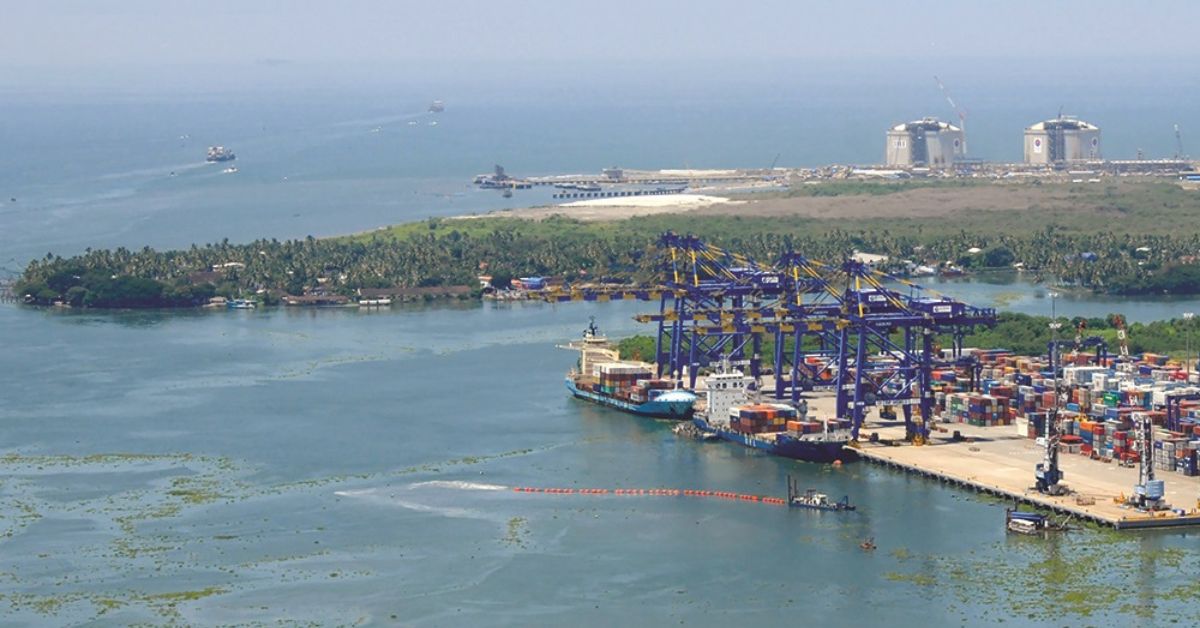In the Kerala-Konkan Basin, Kochi’s port is expected to serve as the new shore support base for offshore oil exploration activities. Oil India and the Cochin Port Authority have formally agreed, opening the door for the construction of vital port-based infrastructure that is suited to offshore drilling requirements.
In order to assist Oil India’s offshore operations, which are expected to start later this year, a full support facility will be established within the port premises thanks to the cooperation. It is anticipated that the facility will function as a high-efficiency logistics center, simplifying the transportation, storage, and refueling of the ships and supplies needed for offshore drilling.
To enable round-the-clock operations, the future infrastructure will comprise a dedicated warehouse, a dry bulk handling facility, and an exclusive jetty. To ensure smooth vessel turnaround and operating uptime, they will be complemented by integrated systems for potable water, shore electricity, and other necessary utilities. Such a facility is essential for meeting the changing sustainability demands of India’s energy sector as well as for operational efficiency.
Industry analysts view the move as a step toward building future-ready maritime ecosystems that support both economic growth and energy security, without compromising on environmental performance. The decision to anchor such a facility in Kochi also reinforces the city’s growing role in India’s green port development model, as it adapts to the shifting demands of cleaner, technology-driven port operations.
This shore base project is not only a logistics boost but also a capacity-builder for India’s self-reliance in hydrocarbon exploration, particularly in challenging offshore environments. The Kerala-Konkan Basin, while rich in reserves, remains largely underexplored. Having a well-equipped logistics node in Kochi is expected to reduce dependency on distant support facilities, optimise response time, and potentially bring down the carbon footprint of offshore supply chains.
The agreement also signals a rising trend of synergy between India’s port authorities and energy PSUs to build integrated logistics corridors. Such developments align with India’s broader maritime strategy under Sagarmala, which envisions port-led industrialisation and an efficient logistics ecosystem that fuels growth while adhering to sustainable development goals. While the immediate focus is on creating physical infrastructure for offshore operations, the longer-term impact could involve a larger shift toward green energy logistics.
Port authorities have expressed interest in introducing renewable energy systems and eco-friendly material handling processes as part of their vision to future-proof the port environment. This includes a possible transition to electric or hybrid cargo handling equipment and stricter environmental compliance for port-based oil logistics. For Kochi, this project reinforces its emerging identity as a multi-utility port city—offering capabilities that stretch beyond cargo into high-value, strategic domains such as offshore energy, marine engineering, and environmental logistics.
It is also likely to generate ancillary employment, support local businesses involved in ship services, and create spin-offs in engineering and construction sectors. With energy security becoming an increasing priority and exploration in India’s western offshore expanding, the success of this shore base could serve as a blueprint for other coastal cities. The challenge ahead will be to maintain an equilibrium between industrial ambition and environmental responsibility—a balance that future port developments must actively seek. By integrating operational efficiency with sustainable design, Kochi stands to demonstrate how India’s ports can power the nation’s energy future while remaining accountable to the environment and community they serve.









